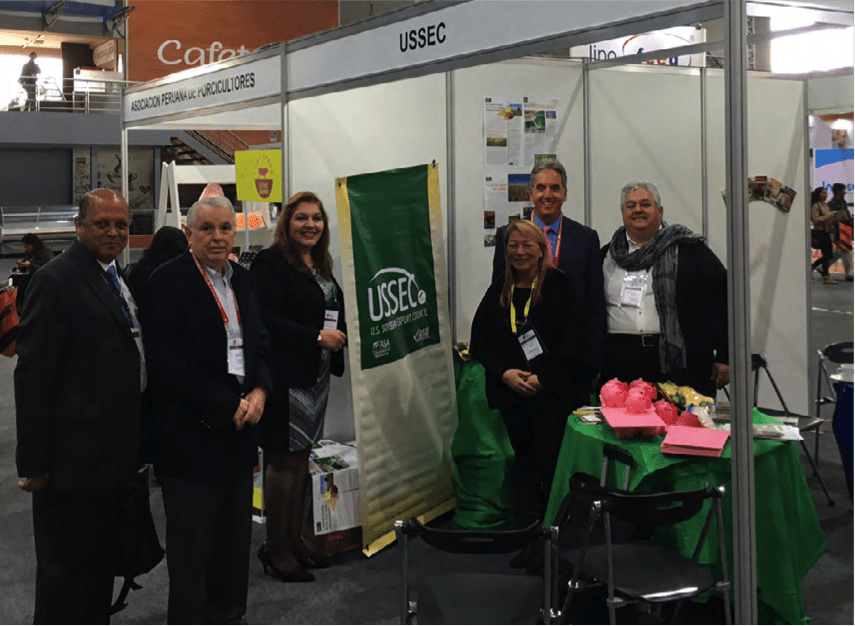South American Customers Learn About U.S. Soy at Ibero-American Swine Congress in Peru
- Category:
- Animal Utilization
- General News

USSEC participated in the V Ibero-American Swine Congress and the VI International Swine Expo in Lima, Peru.
USSEC consultant Carlos Campabadal presented “The Effect of Processing in Swine Performance.” He also worked at the USSEC booth, answering questions on U.S. soybean meal quality, swine nutrition, and management topics. USSEC consultant Julio Chaves spoke about the future of swine production in Latin America in his presentation, “Quo Vadis Porcus.”
There were excellent opportunities to network with customers throughout this event, especially because there were over 600 participants, mostly from South America. Swine producers and technicians were informed of the high nutritional value of U.S. soybean meal and the differences in digestible amino acids, energy, phosphorus, and sucrose between U.S. soybean meal and other sources of South American soybean meal. They were also told of the importance of formulating swine diets using digestible amino acids and the ideal protein profile. This will hopefully result in an efficient and continuous use of U.S. soybean meal in swine diets, which will increase the demand of U.S. soybeans. Most of the questions Mr. Campabadal received at the USSEC booth were related to feed manufacturing such as the optimal particle size of corn and the use of U.S. soybean meal for the different stages of the life of pigs, which was recommended to be 600 microns for corn, and because of the particle size of soybean meal, this product doesn’t need to be ground. On the other hand, because of its large particle size, Brazilian and Argentinean soybean meals need to be ground, especially in swine pre-starter diets and pelleted feeds. Participants also asked about management recommendations to improve the process of grinding, mixing, and pelleting. USSEC consultants also provided recommendations on efficient ways to produce good quality swine diets made up of U.S. corn and soybean meal. An important point discussed with several swine producers was U.S. soybean sustainability and the problems resulting from DDGS and fishmeal in swine diets.